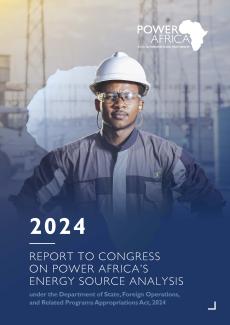Less than ten years after the signing of the bipartisan Electrify Africa Act in 2016, Power Africa continues to make substantial progress in helping the people of Africa realize the benefits of electricity. Since passage of the Act, Power Africa has supported 152 projects to reach financial close, representing 14,252 megawatts (MW) of generation capacity, enough to power more than 28 million households and businesses in sub- Saharan Africa. Of these projects, 104 are now commissioned and producing electricity for more than 16 million households and businesses, with nearly 8,000 MW of utility-scale power. These achievements are the direct result of Congressional bipartisanship to invest in Africa.
As envisioned by former House Foreign Affairs Committee Chairman Ed Royce (R-CA), to address Africa’s massive energy shortages, Power Africa must embrace “an all-of-the-above energy strategy that allows African countries to develop energy sources that will work best for them.” Chairman Royce also said the high cost of energy makes producing goods for export almost impossible, and that it is in the United States’ interest to help Africa become one of the world’s great trading partners. Representative Brendan Boyle (D-PA) agreed, stating, “Mr. Speaker, sometimes the right thing to do is also in our strategic interest as a country.”
In the FY 2024 State, Foreign Operations and Related Programs Act, Congress called upon the USAID Administrator to report on the extent to which Power Africa continues to support an “all-of-the-above” energy strategy. As stated in the Electrify Africa Act, it is the policy of the United States to ‘‘promote an all-of-the-above energy development strategy for sub-Saharan Africa that includes the use of oil, natural gas, coal, hydroelectric, wind, solar, and geothermal power, and other sources of energy.’’ This report presents the metrics that capture how Power Africa has supported this strategy and continues to achieve the objectives of the Electrify Africa Act and serve African nations and their citizens.

